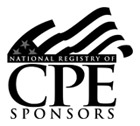
CPA - medium firm
CPA - large firm
Enrolled Agent
Other
Estate Tax Planning examines the various aspects of planning for the estate tax liability. The course begins with a discussion of the genesis of estate taxation in English common law and continues with an examination of the estate and its administration. The subjects included in the course include the following:
- The Estate and its Administration
- Federal Gift and Estate Taxes
- Common Estate Planning Trusts
- Calculating Federal Estate Taxes
- State Death Taxes
- Estate Tax Payment
The text serves as an introduction to the issues of estate settlement and includes a discussion of the probate estate and the federal gross estate. The roles of the executor and administrator are also explained. The student is taken through the steps of a federal estate tax calculation, beginning with a discussion of the components of the federal gross estate and continuing with an explanation of adjusted gross estate, taxable estate, tentative tax base, tentative tax and tax payable before credits. The various credits and deductions are examined—including the marital deduction, unified tax credit, state death tax credit, credit for foreign death taxes and credit for tax on prior transfers—and their place in the federal estate tax calculation is explained. The role of trusts in estate tax minimization is considered, and an explanation of the common trusts employed in estate tax planning is given. The uses of credit shelter trusts, QTIP trusts and irrevocable life insurance trusts are demonstrated. State death taxes are considered, and inheritance taxes are compared to estate taxes with respect to the party liable for payment and the role of decedent/beneficiary relationships in inheritance taxation. Finally, the sources of estate tax payment are examined and compared.
|
Self-Study Course Instructions: FOR DOCUMENT-BASED COURSES Download the course document(s) (below) and follow prompts contained in the document. FOR RECORDED COURSES WITH VIDEO Download any course document(s) (below) which may include handouts, glossary, transcripts, etc. Follow any prompts contained in the documents to help you complete the course. Most documents are searchable. |
-
Explain the differences between an estate for tax purposes and a probate estate;
-
Identify those assets that comprise the federal gross estate;
-
Understand the duties of an executor; Understand the difference between inheritance taxes and estate taxes and the typical beneficiary classifications for state inheritance tax purposes;
-
Explain how gifts are taxed under the federal gift tax system; Identify the deductions and credits allowed under the federal system of estate taxation;
-
Discuss the common trusts employed in estate tax planning; Perform an estate tax calculation, and
-
Identify the methods of estate tax payment and their cost consequences.
- CPAacademy self-study courses are online.
- The self-study format allows you to a) access the material online 24/7 and b) study at your own pace.
- Per NASBA guidelines, you have one year from date of purchase to complete each program.
- Complete your final exam at any time and get graded instantly. You can retake the exam at no additional charge (unlimited attempts).
- Print your own certificate of completion on the spot upon passing the exam.
- Grading policies: a) courses have a minimum passing score 70% b) test takers will not be provided feedback on failed exams.
- Upon achieving a passing score, test takers will be notified of the correct answers to the questions missed.

Paul Winn
Winn Publications
Financial Writer, Editor & Trainer
pjwinn@verizon.net
(757) 253-8075
Paul J. Winn, CLU, ChFC has over thirty years experience in the life insurance and investment industry. As well as fifteen years as a financial writer, editor, and trainer. Paul has worked for Mutual Life Insurance Company of New York, Security Mutual Life Insurance Company, Principal Financial Group, and the Maryland Financial Corporation. Paul is a Published book author, writer & editor of major mutual life insurance company’s agent-training “university”, and the creator of more than 100 training courses in computer-based training, print and scripted classroom formats.


NASBA Approved
CPAacademy.org (Sponsor Id#: 111889) is registered with the National Association of State Boards of Accountancy (NASBA) as a sponsor of continuing professional education on the National Registry of CPE Sponsors. State boards of accountancy have final authority on the acceptance of individual courses for CPE credit. Complaints regarding registered sponsors may be submitted to the National Registry of CPE Sponsors through its website: www.nasbaregistry.org.
CPAacademy.org 1685 S. Colorado Blvd, Suite #205, Denver, CO 80222






